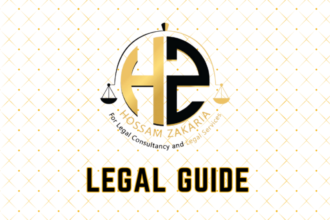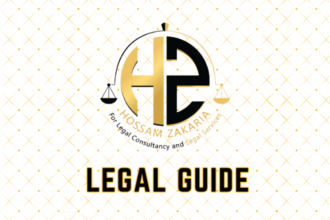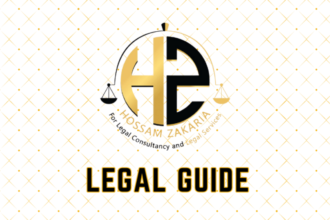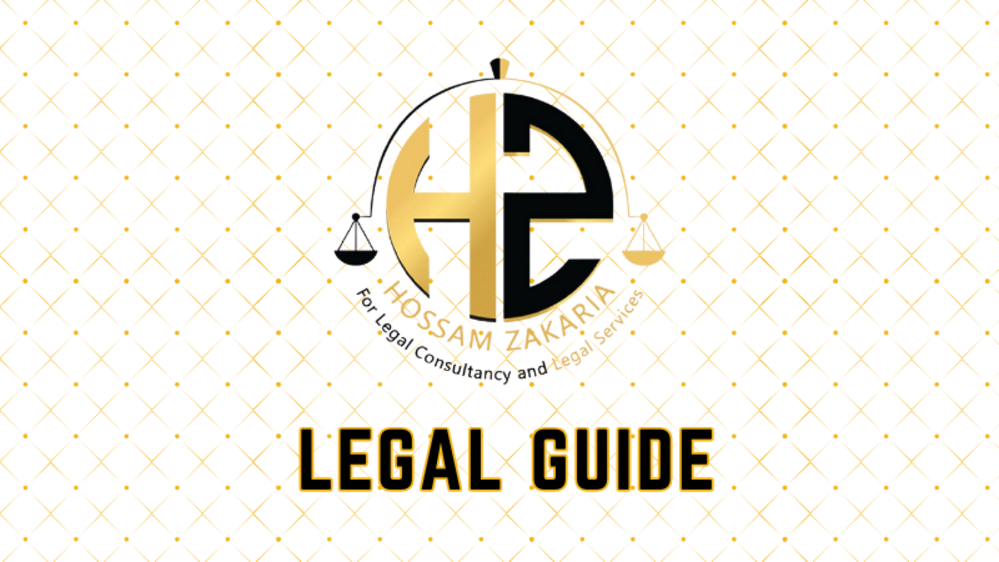Introduction: Navigating the Arbitration Landscape in the UAE for 2025 and Beyond
The United Arab Emirates has firmly established itself as a pivotal jurisdiction for international commerce and dispute resolution in the Middle East. With the adoption and ongoing modernization of its arbitration framework—particularly through Federal Law No. 6 of 2018 on Arbitration and recent regulatory updates—the UAE offers both businesses and investors a sophisticated, secure, and highly enforceable arbitration environment. As we approach 2025, significant legal developments and clarifications are shaping not only how arbitration agreements and clauses are drafted, but also how they are interpreted and enforced by courts and arbitral tribunals. For executives, HR managers, legal counsel, and business leaders, mastering the intricacies of UAE arbitration law is essential for risk mitigation, operational flexibility, and upholding commercial interests. This article provides a comprehensive, consultancy-grade analysis of current laws, recent changes, practical compliance strategies, and actionable insights for leveraging arbitration agreements effectively in the UAE’s dynamic legal climate.
Table of Contents
- Understanding the UAE Arbitration Legal Framework
- Recent Developments and 2025 Updates in UAE Arbitration Law
- Best Practices for Drafting Arbitration Agreements and Clauses
- Legal Requirements and Formalities for Arbitration Agreements
- Enforceability of Arbitration Clauses Under UAE Courts
- Risks, Challenges and Non-Compliance Consequences
- Practical Applications: Case Studies and Hypothetical Scenarios
- Compliance Strategies and Executive Checklists
- Conclusion: Key Takeaways and Future Outlook
Understanding the UAE Arbitration Legal Framework
The Foundation: Federal Law No. 6 of 2018 on Arbitration
Federal Law No. 6 of 2018 (the “UAE Arbitration Law”) marked a transformative shift in the UAE’s approach to arbitration, aligning local practice with international standards such as the UNCITRAL Model Law. This reform placed the UAE at the forefront of Middle Eastern arbitration hubs, ensuring that parties could rely on autonomy, confidentiality, procedural flexibility, and enforceability of awards—characteristics vital for both domestic and cross-border commercial contracts.
Key features of the UAE Arbitration Law include:
- Parties’ freedom to structure arbitral procedures within the bounds of the law
- Clear requirements for the validity and enforceability of arbitration agreements
- Recognition of electronic and digital signatures
- Streamlined mechanisms for the appointment and removal of arbitrators
- Grounds for setting aside or refusing enforcement of arbitral awards
- Robust provisions on confidentiality and independence
Importantly, this law applies to any arbitration conducted in the UAE or whenever parties have agreed to its application. The UAE is also home to renowned arbitral institutions, such as the Dubai International Arbitration Centre (DIAC) and the Abu Dhabi Commercial Conciliation and Arbitration Centre (ADCCAC).
Official References
- Federal Law No. 6 of 2018 on Arbitration (Official Gazette No. 631)
- Relevant Ministerial Circulars and DIAC/ADCCAC Rules
- UAE Ministry of Justice Portal
Recent Developments and 2025 Updates in UAE Arbitration Law
Key 2025 Legal Updates and Regulatory Clarifications
In light of the UAE government’s ongoing Vision 2030 initiatives, the legal landscape in 2025 continues to evolve. The past two years have seen:
- New Cabinet Resolutions clarifying procedural aspects of arbitration in onshore and free zone jurisdictions
- Judicial opinions and Court of Cassation judgments addressing the scope, formality, and validity of arbitration clauses
- Enhanced recognition of digital contracts and e-signatures, notably through Federal Decree-Law No. 46 of 2021 on Electronic Transactions and Trust Services, facilitating remote and cross-border contracts
- Emphasis on gender neutrality and arbitrator independence, reflecting global best practices
These updates are designed to increase confidence among international investors and to harmonize local practice with international conventions, including the New York Convention (1958), which the UAE has ratified.
For those drafting or revising arbitration agreements, understanding both the legislative text and its practical court interpretation is vital. The following table provides a side-by-side comparison of the legal framework before and after these recent changes:
| Aspect | Pre-2018/Traditional Approach | Post-2018 / 2025 Framework |
|---|---|---|
| Recognition of Arbitration Agreements | Strict formal requirements; limited recognition of electronic format | Expanded to include electronic and digital contracts; flexible formalities |
| Appointment of Arbitrators | Local court involvement common; risk of delays | Expedited appointment; greater party autonomy |
| Challenge and Removal of Arbitrators | Limited grounds; protracted process | Clearer grounds and procedures for removal under the Law |
| Enforceability of Awards | Uncertainty over public policy; delays in enforcement | Greater clarity on public policy grounds; streamlined enforcement aligned with New York Convention |
| Role of Courts | Frequent judicial intervention | Reduced court intervention; stronger support for autonomy |
Consultancy Recommendations
With these updates, legal teams should regularly review existing templates, align contract processes with new formalities, and monitor court decisions that further interpret ambiguous areas—especially regarding online contracting and award enforcement.
Best Practices for Drafting Arbitration Agreements and Clauses
Core Elements of Valid Arbitration Clauses
Arbitration agreements form the backbone of dispute resolution planning in commercial transactions. Article 7 of the UAE Arbitration Law details the validity of such agreements, with emphasis on the following:
- Written format—now expressly including electronic communications, per Federal Decree-Law No. 46 of 2021
- Clear indication of parties’ intent to arbitrate disputes, present or future
- Specification of the applicable arbitral institution and reference to its rules
- Stipulation of the governing law and seat of arbitration
- Language, number of arbitrators, and scope of arbitrable disputes
Practical Insights: Drafting Precision
Ambiguous or incomplete clauses can render the arbitration agreement unenforceable or trigger protracted litigation. To maximize enforceability and procedural predictability, experience shows it is critical to:
- Use institutional model clauses (e.g., DIAC Model Arbitration Clause) but tailor as needed for the specific contract
- Define the scope of arbitrable matters—including or excluding interim relief, injunctive measures, or specific categories of disputes
- Indicate the number and method of appointing arbitrators in detail
- Include language on governing law and procedural rules to prevent forum disputes
- Anticipate e-signature or digital execution when contracting remotely
Suggested placement for a compliance checklist visual would be directly below for in-house legal teams and executives to rapidly assess their agreements.
Legal Requirements and Formalities for Arbitration Agreements
Mandatory Conditions under UAE Law
Article 7 of the UAE Arbitration Law stands as the primary legislative authority on the form and essential elements of arbitration agreements. Key legal mandates include:
- The arbitration agreement must be in writing, which is interpreted broadly to include signed letters, emails, or exchanges clearly referencing the agreement
- Electronic signature and digital agreements are legally recognized under Federal Decree-Law No. 46 of 2021
- The parties’ intention to arbitrate must be unequivocal
- The person signing on behalf of a company or organization must have requisite authority, as challenges often arise on this basis in enforcement actions
Recent caselaw from the Dubai Court of Cassation emphasizes that arbitration cannot be presumed and must be expressly agreed.
Table: Key Legal Requirements at a Glance
| Requirement | Legal Source | Common Risk | Compliance Tip |
|---|---|---|---|
| Written Format | Art. 7, Federal Law No. 6/2018 | Ambiguous or verbal agreements | Always ensure a signed document (hardcopy or e-signature) |
| Authority to Sign | Art. 4, Federal Law No. 6/2018 | Lack of company resolution or POA | Verify and retain authorization documents |
| Scope of Matters | Art. 7(2) | Vague dispute descriptions | Clearly enumerate arbitrable matters |
| Institution/Rules | Art. 25 and institutional rules | Unspecified or conflicting arbitral seats | Name institution and rules expressly |
Enforceability of Arbitration Clauses Under UAE Courts
Judicial Interpretation and Recent Caselaw
The enforceability of arbitration clauses in the UAE is increasingly protected by both statute and jurisprudence. However, courts continue to scrutinize:
- The clarity and unambiguity of the arbitration clause
- The capacity and authority of signatories
- Potential conflicts with UAE public policy or non-arbitrable subject matters (e.g., certain real estate or employment disputes)
High-profile court decisions in 2022–2024 have highlighted that: if an arbitration clause does not comply with mandatory requirements or is so vaguely worded as to create uncertainty about the forum, UAE courts may decline to enforce the clause, leading to potentially significant exposure for contract parties.
Institutional Perspectives
The DIAC, ADCCAC, and free zone courts (such as DIFC and ADGM Courts) maintain guidelines and model clauses which, when used properly, substantially increase the probability of seamless enforcement.
Risks, Challenges and Non-Compliance Consequences
Key Legal and Commercial Risks
Improperly drafted or executed arbitration clauses pose significant risks:
- Risk of court litigation if the clause is unenforceable
- Delays and added costs due to jurisdictional disputes
- Potential for parallel proceedings (arbitration and litigation occurring concurrently)
- Loss of procedural advantages, such as confidentiality and party-autonomy
- Increased exposure to unfavorable judgments if the clause is set aside
Penalty Comparison: Non-compliance Pre and Post-Reforms
| Non-Compliance Scenario | Pre-2018 Risk | 2025 Risk (Post-Reforms) |
|---|---|---|
| Clause lacks specificity | Possible judicial interpretation | CFirm court refusal to enforce, litigation exposure |
| No authority to bind company | Potential contract-wide invalidation | Enforcement action dismissed, possible damages |
| No written signature | Clause possibly overlooked | Inadmissible; claim reverts to courts |
Practical Applications: Case Studies and Hypothetical Scenarios
Case Example: Enforceability of E-Signed Agreements
A multinational construction firm, headquartered in Europe, enters a key contract with a Dubai-based developer. The dispute resolution clause is agreed via email using secure electronic signatures. When a contractual dispute arises in 2024, the contractor applies to enforce the clause. The Dubai Court of Cassation upholds the arbitration agreement, referencing Federal Decree-Law No. 46 of 2021, and clarifies that an e-signature suffices provided the signatories were duly authorized. This decision demonstrates the judiciary’s willingness to support the evolving digital contracting landscape in the UAE.
Hypothetical: Risk of Overbroad Arbitration Clauses
An HR manager for a UAE-based holding company uses a generic template for employment agreements which includes an arbitration clause without explicit reference to the applicable institution, seat, or procedural rules. When an employee initiates a claim in local court in 2025, the employer tries to compel arbitration. The court refuses, citing vagueness and lack of specificity, exposing the company to litigation risk and additional costs. Lesson: customized, clear, and precise arbitration clauses are crucial—especially in employment and real estate contexts.
Compliance Strategies and Executive Checklists
Essential Steps for Legal and HR Teams
- Conduct annual reviews of contract templates and ensure alignment with the latest amendments and court precedents
- Engage in targeted training for contract management and legal staff concerning digital and electronic formalities
- Deploy compliance checklists prior to contract execution
- Regularly consult institutional dispute resolution guides (e.g., DIAC 2022 Rules) for template clauses
- Document and retain all powers of attorney, company resolutions, and authority documents relating to contract signatories
- Monitor sector-specific judicial decisions, especially if operating in regulated industries (e.g., construction, oil & gas, real estate)
Recommended visual: Arbitration Agreement Compliance Checklist—a process flow diagram showing internal review steps and legal signoff points for each contract.
Sample Executive Compliance Checklist
| ✔ | Is the arbitration clause based on an institutional model and tailored to your contract? |
| ✔ | Are all parties’ signatories authorized as per company resolutions or POAs? |
| ✔ | Is the clause explicit on the seat, rules, and applicable law? |
| ✔ | Has the contract been executed in acceptable written or electronic form? |
| ✔ | Have you reviewed recent judgments for sector-specific risks? |
Conclusion: Key Takeaways and Future Outlook
As the UAE consolidates its status as a preferred arbitration center in the Middle East, staying abreast of legislation, judicial trends, and compliance strategies is critical for all market participants. The increasing acceptance of electronic agreements, streamlined procedural requirements, and robust protection of party autonomy reflect the UAE’s commitment to a world-class dispute resolution environment. However, this opportunity comes with the responsibility to ensure that arbitration clauses are meticulously drafted, regularly updated, and fully compliant with all statutory and regulatory requirements.
Looking forward, businesses and their advisers must integrate legal best practices, review templates proactively, and cultivate strong institutional relationships to remain ahead of legal developments. With well-crafted arbitration agreements, companies can confidently navigate disputes, protect commercial interests, and support the UAE’s vision of legal excellence in 2025 and beyond.
For bespoke advice or an in-depth review of your company’s arbitration protocols, contact our Dubai-based legal consultancy for a confidential, expert consultation.



